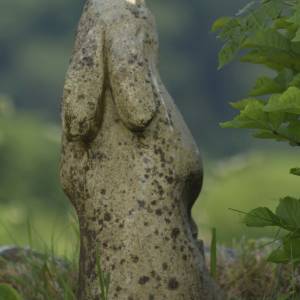The Road Less Travelled
There is more than one way to die - more than one way to erase yourself from the picture. A physical body operates on an animal level and, whoever you are, it must be fed and watered, rested, kept warm and housed. These are the very basics - as Maslow identified. But the mental side of a human being is a more complex country and although psychologists have made strides in understanding why people behave in the ways they do, not everything is explainable.
We should have seen the signs because they were certainly there, but in truth it was beyond our experience of the world.
Four women and three children lived together in a fine old Victorian House in Manchester. A family: a rag bag and complex family, but a family nonetheless. One woman, Jane, who was the birth mother of the children had - just about - held it together before Miriam moved in. For Miriam it was an instinct thing - she saw the children and knew that she would need to be part of their lives. She was also Jane's best friend, and by her own admission, Jane was struggling to manage: manage the children, their personalities, their needs, her needs and the interpersonal mash-up of all their lives together.
Even early on Miriam noticed a peculiar habit Jane had - whatever Miriam said, when she shared her thoughts about the world, or love, or conflict, or whatever, Jane had a tendency to agree. It was an odd thing but nothing to worry about. Jane would always say, "I think that too."
They made it work - sharing the load of the children's lives - women came and went but Miriam and Jane stayed as the tight-knit core. I moved in when the youngest child was 11 and the other two 14 and 16. The house ticked over like any family home with domestic duties and work, TV and late night jaunts to the airport for fancy puddings in a restaurant, the children playing games in their own unique style: canasta, Scrabble, Monopoly, Pictionary. In its detail, and in spite of its unusual make-up, it was much like any other family. A daily round of up for school, breakfast, home, supper, TV, bath and bed. Weekends of long dog walks and swimming and excursions and down time. The women, determined to make it work held house meetings to establish guidelines that took the pressure off, that helped the whole tick along. Like any family, it didn't always run smoothly: but it was well-meaning and there was a lot of love. That got everyone through - just about - unscathed. And Jane was a very good breadwinner: she was a woman who could make things happen. She could convince a funder to back her, she could generate work wherever she went. Jane had the capacity to give people what they needed, say all the right things - she was very, very clever.
You can read the rest here
(I've uploaded one for last week too! Very busy at the moment!)
- 0
- 0
- Apple iPhone SE
- 1/417
- f/2.2
- 4mm
- 25

Comments
Sign in or get an account to comment.


